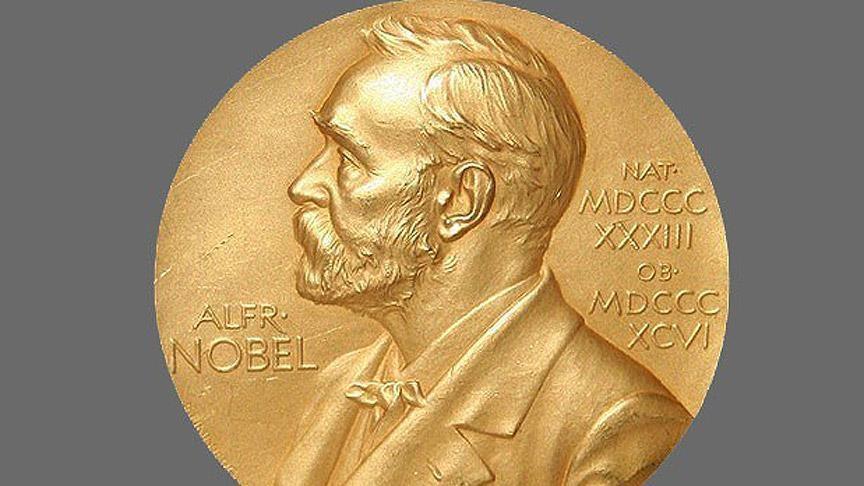Princeton professor wins Nobel Prize for economics
Angus Deaton awarded laureate for analysis of consumption, poverty, welfare

ANKARA
Princeton University professor Angus Deaton has won the Nobel Prize for economics, the Royal Swedish Academy of Science said Monday.
Scottish-born Deaton, 69, received the award for his analysis of consumption, poverty and welfare.
“To design economic policy that promotes welfare and reduces poverty, we must first understand individual consumption choices,” the Nobel committee said in a statement. “More than anyone else, Angus Deaton has enhanced this understanding. By linking detailed individual choices and social group outcomes, his research has helped transform the fields of microeconomics, macroeconomics and development economics,” the statement said.
Deaton’s work analyzes how public policy changes can affect rich and poor, as his three key contributions were announced by the Nobel Committee.
"How do consumers distribute their spending among different goods? Answering this question is not only necessary for explaining and forecasting actual consumption patterns, but also crucial in evaluating how policy reforms, like changes in consumption taxes, affect the welfare of different groups. In his early work around 1980, Deaton developed the Almost Ideal Demand System -- a flexible, yet simple, way of estimating how the demand for each good depends on the prices of all goods and on individual incomes. His approach and its later modifications are now standard tools, both in academia and in practical policy evaluation," the Nobel Committee explained.
In several papers published around 1990, Deaton showed that understanding consumption should start by showing how individuals adapt their own consumption to their individual income. The research clearly demonstrated why the analysis of individual data is key to identifying the patterns to be found in societal spending, an approach that has since become widely adopted in modern macroeconomics. according to the statement.
Deaton's more recent research dealt with measuring and analyzing welfare and poverty. Deaton highlights how reliable measures of individual household consumption levels can be used to discern the mechanisms behind economic development. His research has uncovered important ways of understanding the extent of poverty across time and space. The creative use of household data may shed light on such issues as the relationships between income and calorie intake --thus affecting health -- and the extent of gender discrimination within the family. Deaton’s focus on household surveys has helped transform development economics from a theoretical field based on social group data to an empirical field based on detailed individual data, the statement said.
Deaton, who joined the ceremony via teleconference, was asked if he believes that extreme poverty will continue to decline.
The professor said "yes," but he also added that he "does not want to be a blind optimist".
"There are enormous numbers of people in the world still in poverty, and tremendous health problems among adults and children," he added. "For many people in the world, things are very very bad."
Deaton was also asked to comment on the recent refugee crisis, and if there is a solution to it.
He answered: "What we are seeing now is the result of hundreds of years of unequal development in the rich world, which has left a lot of the world behind. Those people who have been left behind want a better life, and that is putting enormous pressure on the boundaries between the poor world and the rich."
"Poverty reduction in poor countries will solve the problem, but not for a very long time. In the short term. Stabilising political instability in war zones would help," Deaton said.
Deaton, who was born in Edinburgh in 1945, has dual citizenship from the United Kingdom and the United States. He got his PhD degree in 1974 from the University of Cambridge, and since 1983, he has been serving as professor of Economics and International Affairs at Princeton University.
The Nobel Prize for Economic Sciences was established in Sweden in 1968 by the Sveriges Riksbank, the country's central bank. The prize has been awarded 46 times; 17 times it was shared among two people, and 6 times it was shared among three.
The youngest prize winner is Kenneth J. Arrow, who was awarded it in 1972, when he was 52 years old. The oldest award winner is Leonid Hurwicz, who was awarded it in 2007, when he was 90 years old.
Among the 75 people who have been awarded the Nobel Prize in Economy, there is just one woman. Elinor Ostrom was awarded it in 2009.
Here are the Nobel Prize winners in economy since 2000:
2000: James J. Heckman and Daniel L. McFadden
2001: George A. Akerlof, A. Michael Spence and Joseph E. Stiglitz
2002: Daniel Kahneman and Vernon L. Smith
2003: Robert F. Engle and Clive W.J. Granger
2004: Finn E. Kydland and Edward C. Prescott
2005: Robert J. Aumann and Thomas C. Schelling
2006: Edmund S. Phelps
2007: Leonid Hurwicz, Eric S. Maskin and Roger B. Myerson
2008: Paul Krugman
2009: Elinor Ostrom ;and Oliver E. Williamson
2010: Peter A. Diamond, Dale T. Mortensen and Christopher A. Pissarides
2011: Thomas J. Sargent and Christopher A. Sims
2012: Alvin E. Roth and Lloyd S. Shapley
2013: Eugene F. Fama, Lars Peter Hansen and Robert J. Shiller
2014: Jean Tirole
Anadolu Agency website contains only a portion of the news stories offered to subscribers in the AA News Broadcasting System (HAS), and in summarized form. Please contact us for subscription options.




